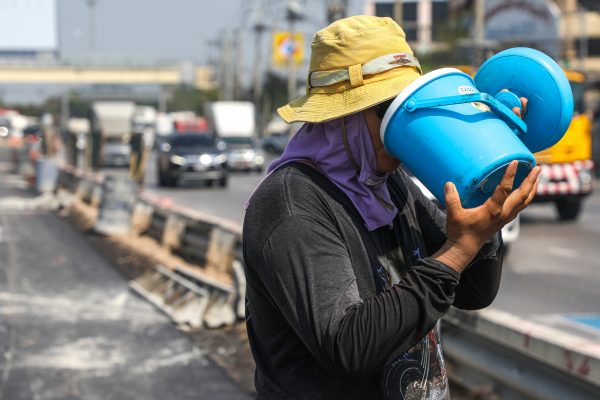Does COVID-19 origin really matter?

The answer is “Yes” and “No”. “Yes” because a non-politicised knowledge can help prevent or soften a future pandemic a great deal, if the world manages to get out of this one. “No” because the possibility of the issue being extremely and dangerously politicized is nearly one hundred percent.
At the moment, the world’s biggest superpowers cannot even agree on whether the “origin” is a settled question. China, backed by a World Health Organisation investigation, insists that it is and that there is no use reopening it. The United States, backed by some Western allies, demands a new probe.
Tension is already high even before a new investigation can begin. Imagine what can happen if the new probe’s results confirm the US claims that the coronavirus came from a lab leak in China. Imagine that the new probe confirms Beijing has been right all along and Washington has been wrong all the time.
The two countries’ mutual mistrust has prevented cooperation on the vaccines, allowing the deadly virus to wreak havoc globally much more than it could have. The conflicts have affected the WHO’s credibility as well. Actually, if the new probe is allowed to begin and yield results contradicting those put forward by WHO-commissioned experts, the agency’s reputation can be in tatters. Imagine a world without any authoritative voice on public health.
To cut a long story short, America suspects that the coronavirus came from a Chinese lab, accidentally or else. China, supported by the WHO investigation, has been strongly denying it from Day One, insisting that the virus was passed innocently from animals to humans.
Politically, the question of the pandemic’s origin is potentially highly explosive. Scientifically, it’s important. Does the world deserve to know unequivocally whether the pandemic was a result of an innocent laboratory accident, or a natural happening, or a secret experiment going terribly wrong, or something more sinister? Yes. Does the world deserve to be punished, perhaps very severely, by that knowledge? No.
The “No” camp can also argue that it will never end. A lab origin confirmation will definitely lead to calls for a further probe. A counter theory will be put forward by Beijing. Either Washington’s claims are proven or China’s insistence is re-affirmed, it can get a lot worse for both countries, and for the entire world.
An “ideal” scenario has been promoted by the “Yes” camp. Proponents of a fresh investigation foresee a probe that is transparent, de-politicized, objective, data-driven, inclusive of broad expertise, subjected to independent oversight, and responsibly managed to minimize the impact of conflicts of interest. Results can change worldviews, policies and global scrutiny regarding virology labs, their activities, and their measures. In the event that natural evolution is confirmed, it will make the world a lot more careful with animals.
Is the “ideal” also realistic? Even scientists outside China are warning that rumors and conspiracy theories could amplify hate crimes and hate speeches, with Asians living in western communities prime targets. That caution aside, there is the crucial issue of Beijing’s cooperation on a new probe, if China allows it all.
This is said by Xinhua just a few days ago: “For political purposes, the US side continues to cross the moral bottom line, maliciously concocting conspiracy theories and spreading misinformation, which has fueled an anti-science trend, exacerbated racial discrimination, and undermined the global fight against the pandemic.
The United States has indeed become the creator and disseminator of a political, information and moral virus.”
If Washington is as alleged, maybe a new round of investigation is not totally necessary. Keeping the suspicion alive may just be enough to considerably discredit China. But conspiracy theories can also work both ways, and America is not immune to shocking conspiracy theories itself.
COVID-19 is now famous for ruining “success stories”, attacking the likes of Thailand and Taiwan for being too complacent and probably too politicized. But what the deadly virus probably likes the most are human conflicts, as it has shown time and again that it can slip through any tiny gap, let alone big ones.
By Tulsathit Taptim






